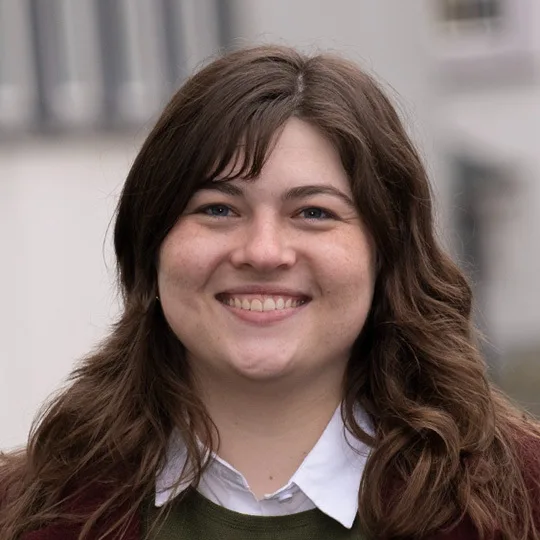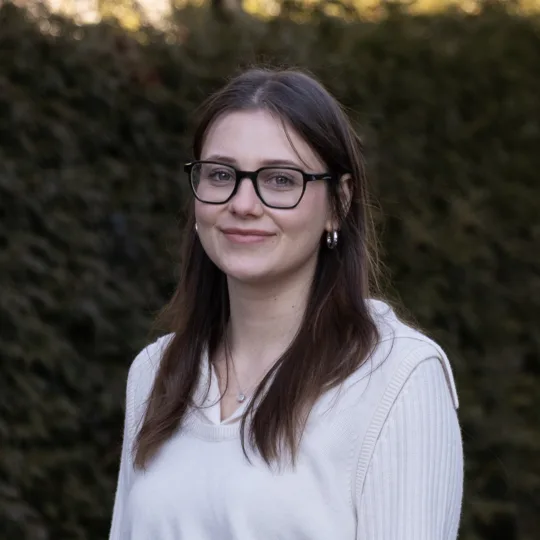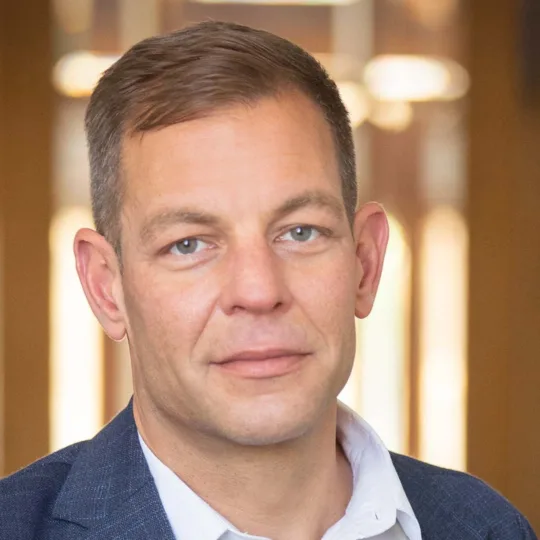International Swiss Talent Forum: Developing tomorrow’s ideas today
Today’s talented minds are tomorrow's innovators. At the International Swiss Talent Forum (ISTF), creative solutions to global challenges are found. Established researchers and entrepreneurs set tasks for international teams spanning various disciplines. The various teams are guided by individual coaches.
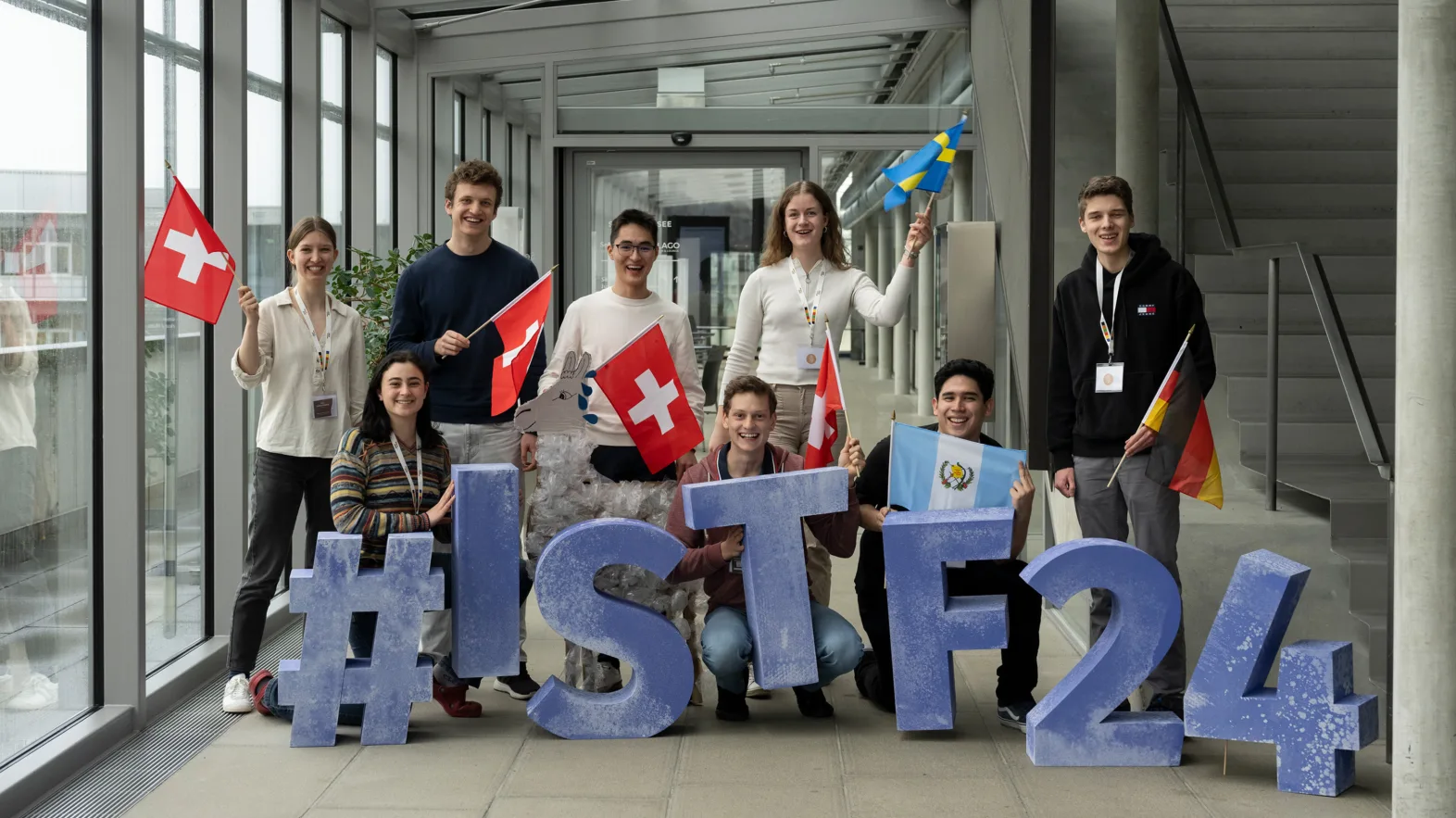
How to ensure that what we learn today will still be relevant tomorrow? Young talents from all over the world addressed this question at the annual International Swiss Talent Forum, which was held in Nottwil in February 2024. Around 80 young participants from over 30 different countries took part in this five-day event, which was organised by the Schweizer Jugend forscht foundation (SJf).
Challenges
The ISTF begins with a bootcamp on Day 1 in which young talents are assigned to intercultural and interdisciplinary teams. Each team will focus on a global challenge over a five-day period, presenting their respective solution on day five. Each team will receive the respective tasks (challenges) from a coach (referred to as a ‘challenger’). This person is an expert in the given industry and/or specialised in research. This year's topic was 'Learning for the Future'. Each challenger not only explains the often tricky challenges to his/her team, but also offers a steady flow of exciting ideas and constructive feedback on the solutions developed.
Coaches
Coaches guide their respective team towards a solution, which will then be presented to the other participants, guests and journalists at the closing public event. During the various work phases (referred to as 'cycles'), the coaches encourage the team members, offer problem-solving tips and share various brainstorming methods. This helps them to structure creative ideas, visualise concepts and/or find collaborative solutions. For example, the coaches explain that teamwork is not just about assigning individual tasks: A team has to coordinate and come together - and not merely put individual pieces together at the end. 'I think the most important thing is for team members to really listen to each other,' explains coach Suzie Fuchs. For her, this means taking both the professional and cultural differences of team members into account. In her view, it is important to create a context in which all team members actively contribute. The many different perspectives and ideas provide fertile ground for an innovative solution to emerge.
«The most important thing is for team members to really listen to each other.»
Coaches help participants to hone universally applicable soft skills: critical thinking and conflict resolution are just as important as communication skills. At the same time, each coach adopts a different approach and methodology. For example, some take cultural differences into account, others less so - and they are responsive to their teams. Suzie Fuchs has been an ISTF coach for several years. She says that a lot of coaching depends on the dynamics of individual teams as well as on the different professional backgrounds and personalities of participants. By the end of the ISTF, the coaches themselves also gain a great deal of fresh insight: 'I also learn from new situations and group dynamics as well as from individual discussions with participants. I get to know more about their backgrounds and about the education systems in other countries,' adds Suzie Fuchs.
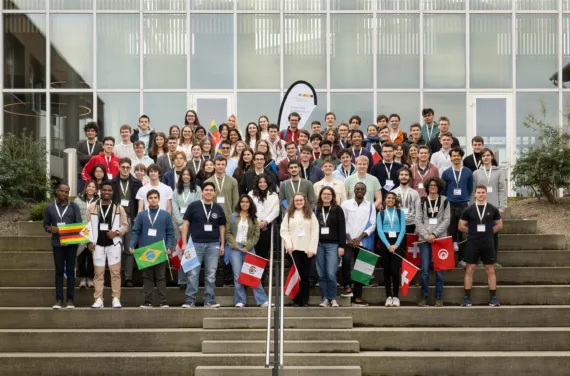
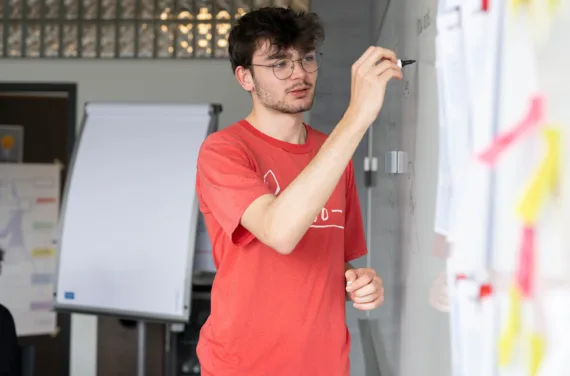
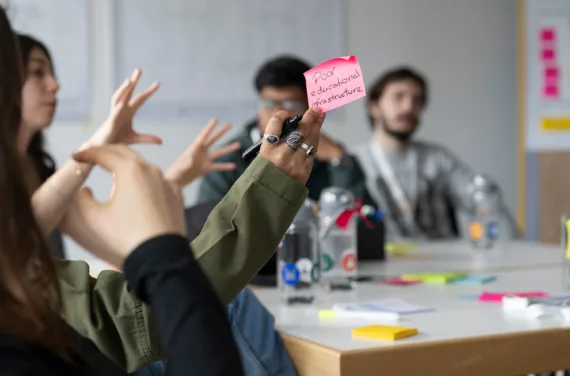
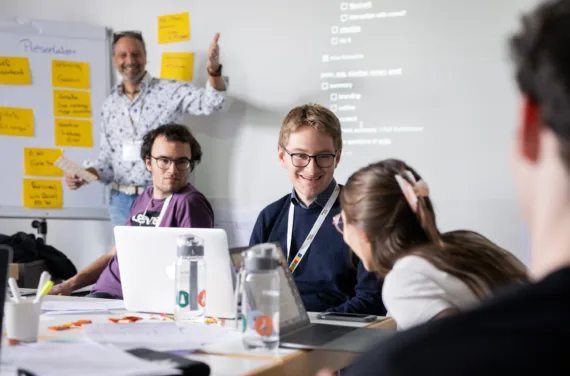
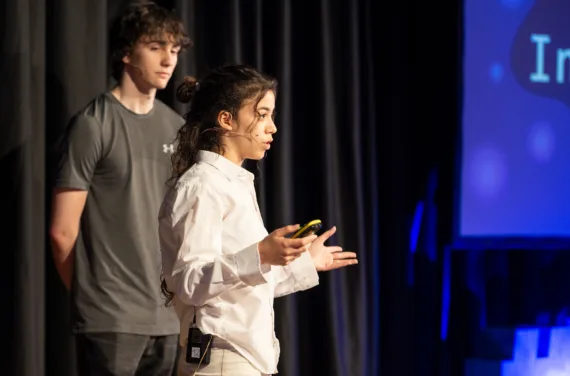
Talents
The young people who take part in the ISTF are highly motivated, enthusiastic and open-minded, which also impresses their coaches. 'They are there because they want to be there. They are very intelligent, driven and committed people,' says Suzie Fuchs. The ISTF offers these young people a choice of current and relevant challenges. In this context, the ISTF not only offers them a good networking opportunity but also a chance to gain insight into other cultures and learn new methods.
«This event can give you many new perspectives, many new abilities.»
19-year-old Keelin Millard from Switzerland enjoyed the group work and discussions in English: 'I learnt how to work in a team, for example, and it was really nice to interact with people in English. It was also interesting to hear different viewpoints and have everyone involved in the process.' 19-year-old Michał Żelazik from Poland also found the experience to be invigorating: ‘This event brings many new perspectives and helps us to develop many new abilities that will be important in your future life, like teamworking in a very broad diverse environment and also thinking about the problems that will definitely be relevant now and in the future.’ 21-year-old Fayez Zouari, from Tunisia, who worked with Michał on the same team adds: ‘The ISTF was a perfect place for networking and learning about other cultures, other traditions, and other people's points of view in several different areas.’
Keelin Millard, 19, Switzerland
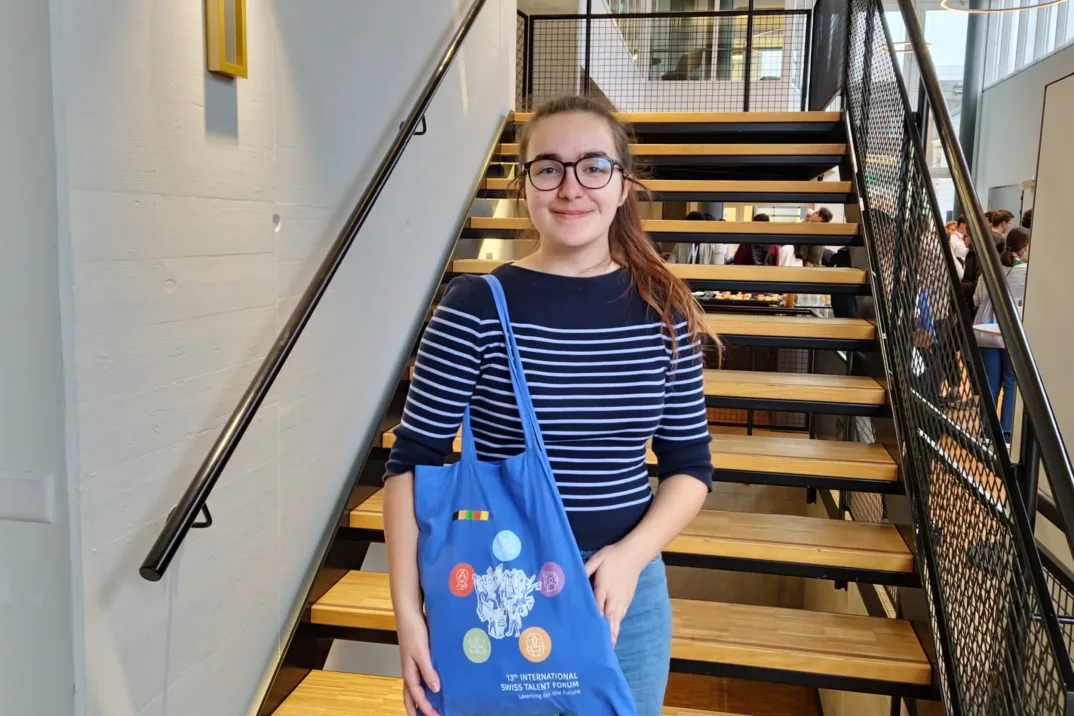
‘I really enjoyed the international atmosphere. I love discovering new cultures and meeting new people from all over the world. I worked on the challenge relating to artificial intelligence. I didn't know much about it before - apart from ChatGPT - and it was a really interesting topic for me. I've always wanted to know what AI will be like in the future and how we will use it in everyday life.'
Challenge: Unlocking OpenAI and Human architecture for Equity, Equality & Ethics
Fayez Zouari, 21, Tunisia, and Michał Żelazik, 19, Poland
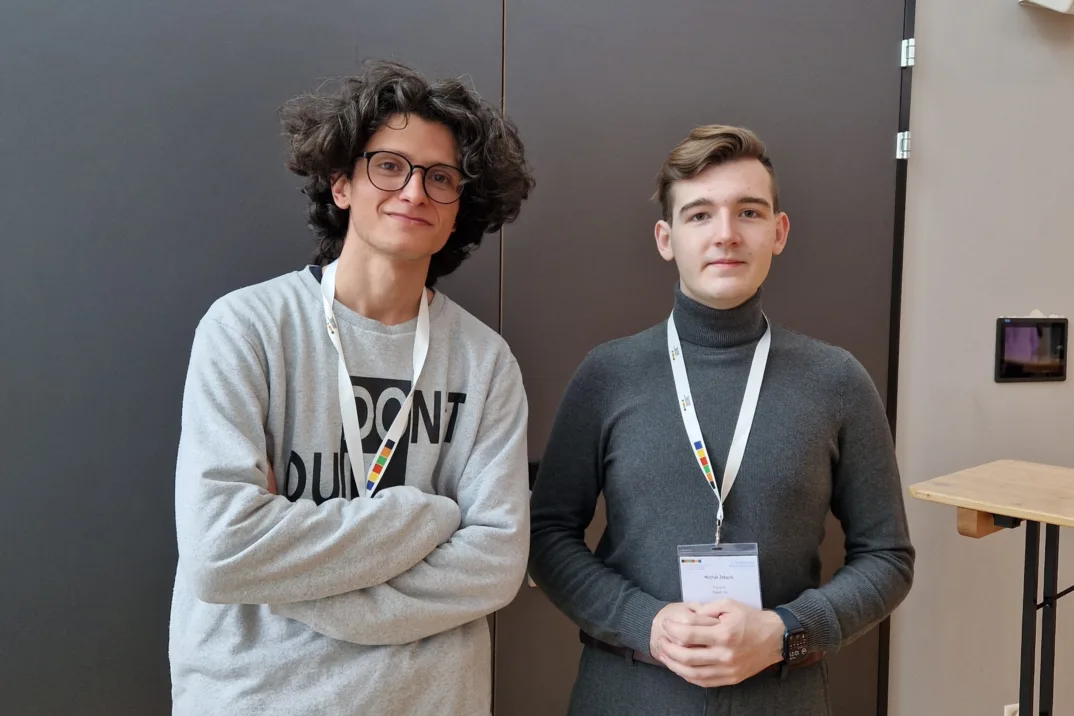
Michał Żelazik: ‘I think that it's very important to work on these crucial topics in such a broad interdisciplinary, diverse, multinational environment, because we can see many perspectives. I can learn a lot about not only my Polish, European perspective, but also from all around the world.’
Fayez Zouari: ‘Seeing the diverse perspectives of other participants is very helpful and they give me very good insights into how people think of education and how we should change the educational system to provide better teachers for students.’
Challenge: Designing the Classroom of Tomorrow
Challengers: Franziska Raaflaub and Sabrina Konrad
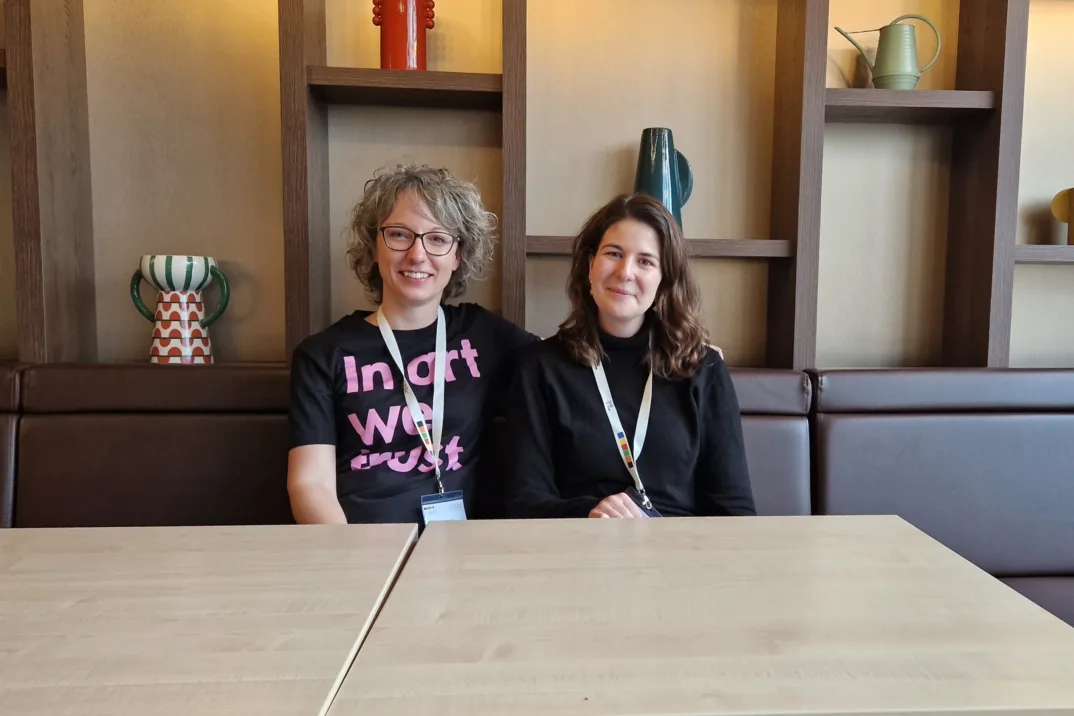
Swiss Federal Institute of Intellectual Property (IPI), Challenge: Shaping the Copyright Framework for Future Education
Franziska Raaflaub: 'Here we discuss copyright in a different setting, with people who are not experts. This gives us a completely outside perspective from young people who also ask insightful questions, which we find really useful.'
Sabrina Konrad: 'We made it clear from the outset that we do not expect a ready-made solution. We wanted everyone to have an enjoyable experience overall. As a challenger, my role is mainly to guide them.'
Coach: Suzie Fuchs
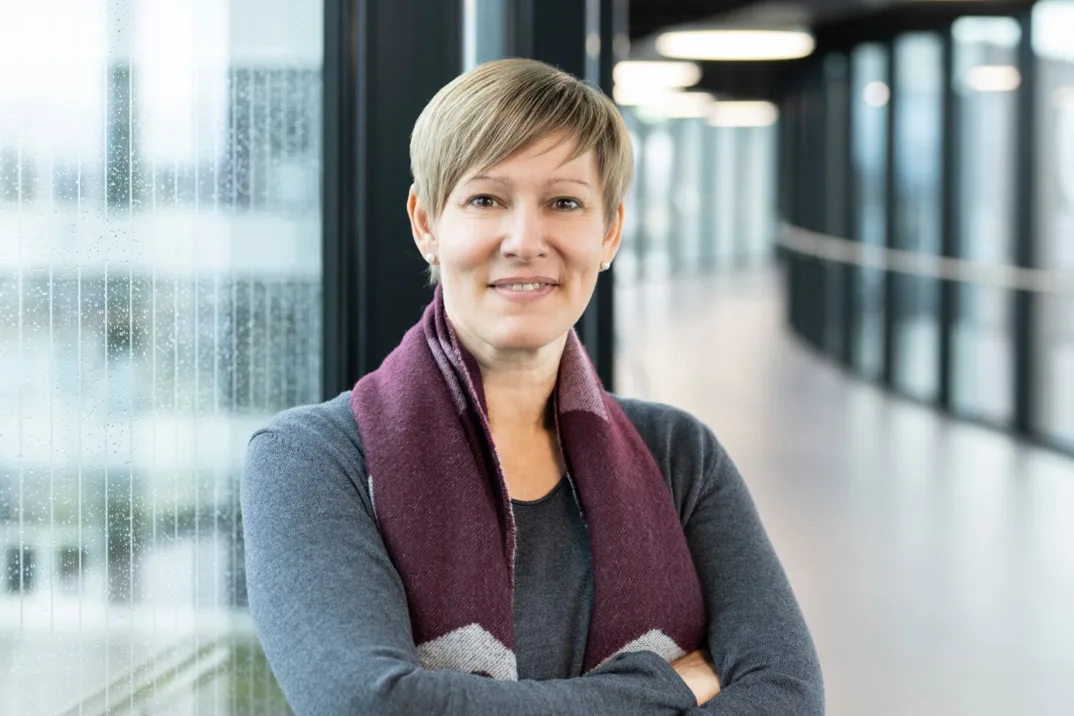
‘My objective is to ensure that participants return home with generally positive feelings about their experience. I think working in a constructive and safe environment is a really wonderful thing and that everyone should have the opportunity to work in such an environment. At the ISTF, we are able to do this.'
Support for young talents at ISTF
As part of its activities in the area international cooperation in education, the Swiss Confederation gives priority to supporting talented young people. This support is provided at various levels within the Swiss education system. The ISTF helps young talent and researchers at international level. The SJf foundation has been organising this event for around 15 years. Anyone invited to the event can take part. From Switzerland, invited participants include finalists from the SJf National Competition, the Science Olympiads and SwissSkills as well as talented young people sponsored by the Swiss Study Foundation. The remaining participants come from outside of Switzerland and have earned their place by having taken part in a science competition for young researchers in their respective countries. The aim of the ISTF is to encourage collaboration between intercultural teams. Upon completion of a Basecamp on Day 1, participants embark on a journey consisting of five work phases (referred to as 'cycles'): Briefing & Analysis, Ideation and Creation, Output & Presentation, Final Event and Reflection. The entire five-day event covers the following:
- Arrival, individual introductions, informal discussion of the topic, allocation of roles and responsibilities and setting rules for collaboration;
- Clear understanding of the challenge with the help of the challenger, formulation of a problem statement together with solution selection criteria;
- Creative brainstorming with emphasis on quantity over quality. Solutions are then assessed on the basis of solution selection criteria;
- Development of a single core message and narrative for final presentation, learning the principles of stage presence and performance, testing;
- Presentation at public final event, Reflection on teamwork, communication and intercultural collaboration followed by debriefing with the challenge.
Contact
Author
